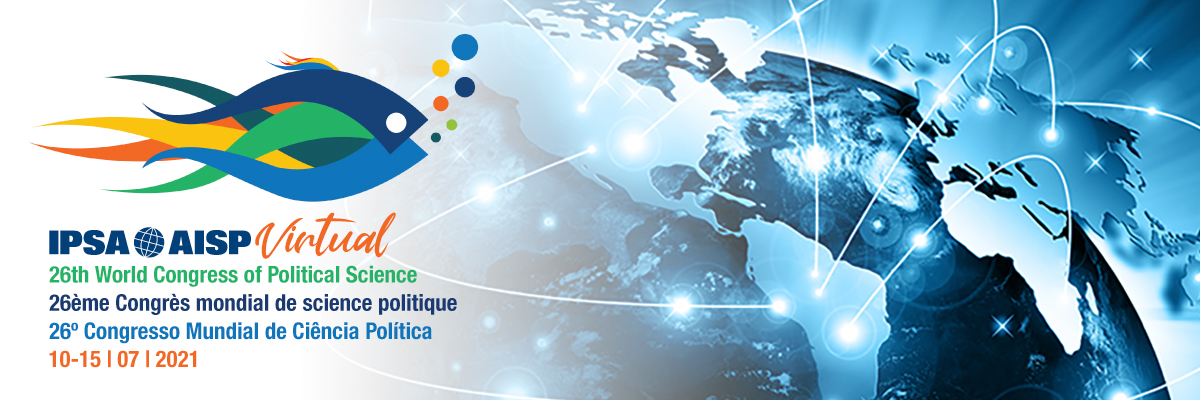Successful “Research in Germany” presentation at the virtual IPSA World Congress of Political Science
(22.07.21) Due to the ongoing COVID-19 pandemic, the International Political Science Association (IPSA) World Conference took place one year after the originally planned date and was held virtually for the first time. The chosen conference theme of “New Nationalisms in an Open World” was retained since it continues to be highly relevant. The political science congress started on Saturday, 10 July with more than 2,800 participants from over 80 countries. Lasting until 15 July, the conference gave researchers from all over the world the opportunity to meet – at least virtually – and engage in academic debate on a subject that is especially pressing at this time.

© International Political Science Association
The World Conference was organised via an online conference platform that offered various functions. The platform homepage enabled congress participants to find out about the extensive academic programme and view exhibitor profiles, including that of “Research in Germany”. The profiles included a brief description, access to information material (e.g. YouTube videos, digital brochures), contact details and a direct link to the exhibitor online events organised as part of the conference.
“Research in Germany” gave participants at the IPSA World Congress several opportunities to make live contact with representatives of the initiative so as to find out about research and funding opportunities in Germany. At an online session entitled “Meet the Funding Organisations”, international political scientists were able to obtain information about funding programmes run by the German Academic Exchange Service, the Alexander von Humboldt Foundation, the DFG and the Max Planck Society. Following brief presentations, smaller breakout sessions gave participants the chance to put individual, in-depth questions to the representatives of the various organisations.
At another event called “Meet the Scientist”, attendees were able to engage in discussion with political scientists from renowned German research institutions about career paths and the research environment in Germany. Seraphine Maerz, University of Frankfurt, Thomas Malang, University of Konstanz, and Joscha Wullweber, University of Witten-Herdecke, described their own personal experience by way of an example, as well as giving international researchers valuable tips and the opportunity to engage in one-on-one discussion. In addition to being supported by German academics, this session enjoyed the particular distinction of being attended by acting IPSA President Marianne Kneuer: she welcomed participants on behalf of the IPSA and encouraged early career researchers in particular to spend time abroad. The “Research in Germany” initiative would like to take this opportunity to thank Ms. Kneuer once again for her involvement and for her motivating words.
In addition to the two special events, conference participants also had the option to meet the “Research in Germany” team during a designated consultation period on the other days of the conference so as to obtain advice on what Germany is able to offer as a research base. “You guys do a lot to help people around” – these were the appreciative words of one participant.
Even though attendance levels varied between the individual events: the “Research in Germany” offerings at the conference were much appreciated overall. This demonstrates that even in a pandemic there is interest in international cooperation.
Contributors to the “Research in Germany” sessions at the virtual conference:
- Alexander von Humboldt Foundation
- German Academic Exchange Service (DAAD)
- German Research Foundation (DFG)
- Max-Planck-Gesellschaft